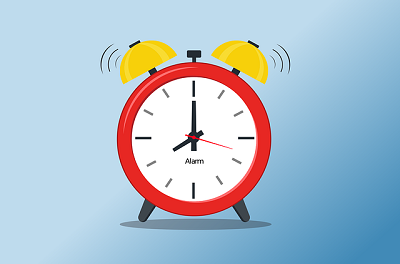Lifestyle Affects Uterine Disorder: Sleep and Exercise
The uterus is located on the hypothalamic-pituitary-ovarium-uterine gonadal axis and is an emotionally sensitive organ. Tension, anxiety, and overload pressure are the fundamental reasons for inducing uterine fibroids, accelerating the growth of fibroids, and exacerbating the subjective feeling of dysmenorrhea. A recent study of patients with fibroids and myosis found that 70 percent were depressed and stressed.

If a woman experiences increased menstruation, prolonged periods, increased leucorrhea, and pain in the lower back, this might be associated with adenomyosis or endometriosis. You should be alert and go to the hospital in time. To treat adenomyosis or endometriosis, women can choose TCM Fuyan Pill to eliminate pain and abnormal leucorrhea and normalize menstruation.
Women undergo many life changes throughout their lives: puberty, pregnancy, childbirth, perimenopause, menopause, etc. Even without external stress, hormonal changes in a woman’s body can lead to bad moods. Women with multiple social and family roles who face more pressure will cause an unbalanced endocrine and nervous system in their bodies. Long-term suffering from this imbalance is bound to lead to health problems.
The relationship between sleep disorders and uterine diseases
There is growing evidence that sleep regulates the metabolic, endocrine, and cardiovascular systems. When a person is asleep, the body shifts from sympathetic to parasympathetic excitation, and the body is in a state of maintenance all at once. Good sleep can keep the body’s blood vessels open and nutrient delivery free of obstruction. Western medical research has found that skin metabolism and internal detoxification work during sleep, starting at 11 p.m. and peaking at 1 to 3 a.m.
A study of sleep and brain endocrine regulation showed that sleep could affect endogenous hormone levels through changes in ovarian function or hormone metabolism. Long periods of sleep deprivation can cause disruptions in metabolism and changes in hormonal regulatory pathways, eventually leading to uterine disease.
With the progress and development of the times, increased work pressure, and faster pace of life, many women often suffer from insufficient sleep or low sleeping quality. It can disrupt hormone levels in women’s bodies, leading to fibroids. In the early stages of fibroid discovery, some women experience tension and anxiety, which affects the quality of sleep and further contributes to the gradual increase of fibroids.
The relationship between exercise and uterine diseases
Exercise and sweating are essential to promote metabolism, burn excess body fat, expel toxins from the body, improve the regulation of the nervous system, improve the nutritional status of tissues and cells, and promote the health of the body.
Exercise can bring pleasure and joy directly to people, and reduce tension and anxiety, thus regulating people’s emotions and improving mental health. Adherence to 30 to 60 minutes of moderate-intensity aerobic exercise daily can increase an individual’s sense of control and self-efficacy. As a “buffer,” exercise can reduce the level of stress brought about by stressful life events. Physical exercise can improve the ability of the individual's physical and cognitive systems to cope with negative emotions.
A study of women in the United States showed a negative association between the current level and intensity of physical activity and the development of fibroids. Women who exercised aerobically for more than 4.51 hours per week reduced the risk of developing fibroids.
Recommended Readings:
Women Health: Protect Your Private Parts in Different Periods
previous pageDevelop These Good Habits To Reduce The Risk Of Gynecological Diseases
next page
You may also be interested in
- Herbal Treatment for Adenomyosis with Large Uterine Enlargement and Heavy Bleeding
- Lifestyle Affects Uterine Disorder: Sleep and Exercise
- Lack of Sleep and Uterine Diseases: Is There a Connection?
- Uterine Enlargement with Adenomyosis: The Silent Disease Women Experience
- Differences Between Adenomyosis and Uterine Fibroids
Testimonials
- Adenomyosis with Ureaplasma Urealyticum Cured by Fuyan Pill
- Tubal blockage with hydrosalpinx can be cured by TCM shortly
- Fuyan Pill Helps A woman with Adenomyosis Get Pregnant
- A Woman with Hydrosalpinx Is Cured with Fuyan pill
- Pelvic Inflammatory Disease Testimonials
- Irregular Vaginal Bleeding and Endometrial Thickening Cured by Fuyan Pill
- Pruritus Vulvae and Frequent Urination: Mycoplasma Infection Cured after 2 Courses



